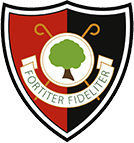Mathematics
SPIRITUAL, MORAL, SOCIAL AND CULTURE IN MATHEMATICS
Spiritual, Moral, Social and Cultural characteristics are a central thread to the learning of Mathematics at Oxted School. All lessons have activities which encourage reflection, collaboration, and courage.
There are also a number of events where students compete against other schools, with students from a range of backgrounds.
These include:
- UKMT Maths Junior Team Challenge, where Year 8 and 9 students compete and collaborate with students from a range of backgrounds
- UKMT Senior Team Challenge, where Sixth Form students get the opportunity to investigate advanced concepts and the history of Mathematics
- SATRO Numeracy Days, where students have the opportunity to apply Mathematics in the context of Horse Racing, Handling and Care at Lingfield Racecourse
- UKMT Junior & Senior Maths Challenges
- Within the curriculum, there are infinite opportunities to include SMSC activities and discussions. A few of these opportunities are highlighted below.
Spiritual Development
Developing deep thinking and questioning the way in which the world works promotes the spiritual growth of students. In Maths lessons students are encouraged to delve deeper into their understanding of Mathematics and how it relates to the world around them.
In all years, students are encouraged to solve problems in novel contexts, considering the information that they may need to arrive at a solution, as well as considering the impact of a change in one variable on the final solution and the conclusions that are drawn.
Students are also given regular opportunities to reflect on their work and respond to feedback from both their teacher and their peers. In this way, they learn to respect the views of others, as well as reflect upon their own understanding.
Students also have the opportunity to gain an appreciation of Mathematics through naturally occurring patterns and applications of the Golden Ratio, whilst Pi Day (14 March) has become a popular competition day in recent years.
Moral Development
The moral development of students in Mathematics is illustrated by the positive relationships between staff and students. Whilst the school wide behaviour policy is strictly adhered to, the approach of teachers to Maths lessons is professional and overwhelmingly positive. Teachers greet students with a smile and are excellent role models.
Within lessons, students have the opportunity to discuss consequences, such as conditional probability, as well as get involved real-life scenarios such as funfair games. The Toni Totti cross-curricular activity and other mysteries provide students with an opportunity to collaborate within the context of an investigation into illegality.
Social Development
Problem solving skills and teamwork are fundamental to Mathematics, through creative thinking, discussion, explaining and presenting ideas.
Students are encouraged to develop their Mathematical reasoning skills, communicating with others and explaining concepts to each other. In lessons, this can take the form of “think, pair, share” tasks, data projects and other collaborative tasks, such as Tarsia puzzles.
Students are also given the opportunity to develop socially through extra-curricular activities, such as the UKMT Team Challenges, Chess Club and the annual “Mathematics of a theme park” trip for Year 7 students. Revision classes also run on a weekly basis.
Cultural Development
Mathematics is a universal language with a myriad of cultural inputs throughout the ages.
In Mathematics, students are given the opportunity to explore a range of methods to solve problems, which can be used throughout their studies. An example of this is the relatively new application of the bar model to fractions, percentages, ratio and solving equations. Students at Oxted are also encouraged to select their own methods from a range of possibilities. When multiplying, for example, students are introduced to column, grid and the Chinese lattice and invited to select their preferred method.
Students also explore cultural aspects such as exchange rates, compound interest, and investigating what constitutes a real living wage.
British Values
British values are not only present within the Mathematics classroom. The Mathematics Department also run family learning events and SEN workshops, where parents are encouraged to join the students in learning methods such as methods of multiplication, how to use the bar model for problem solving, and how to support Mathematics at home.



